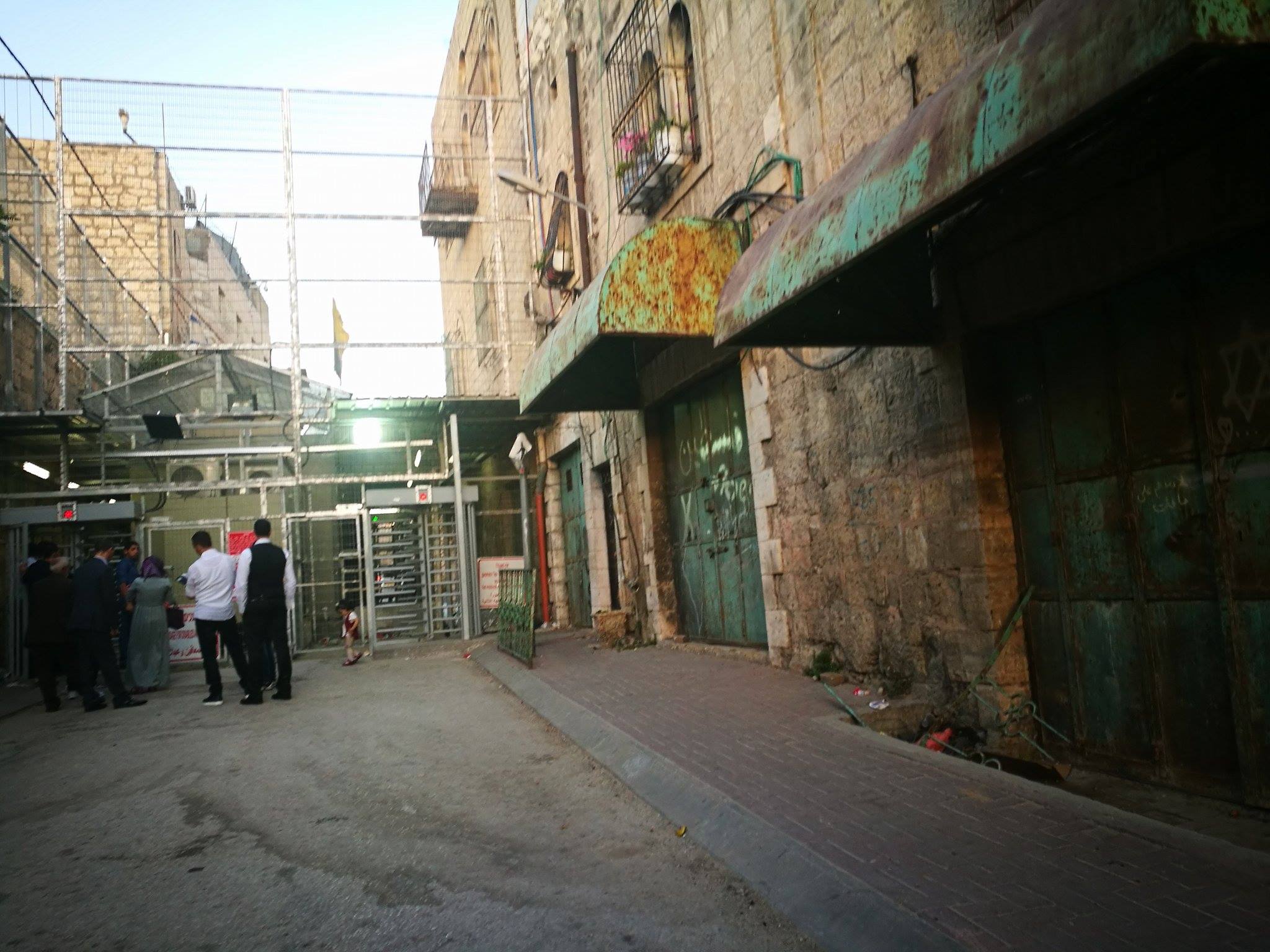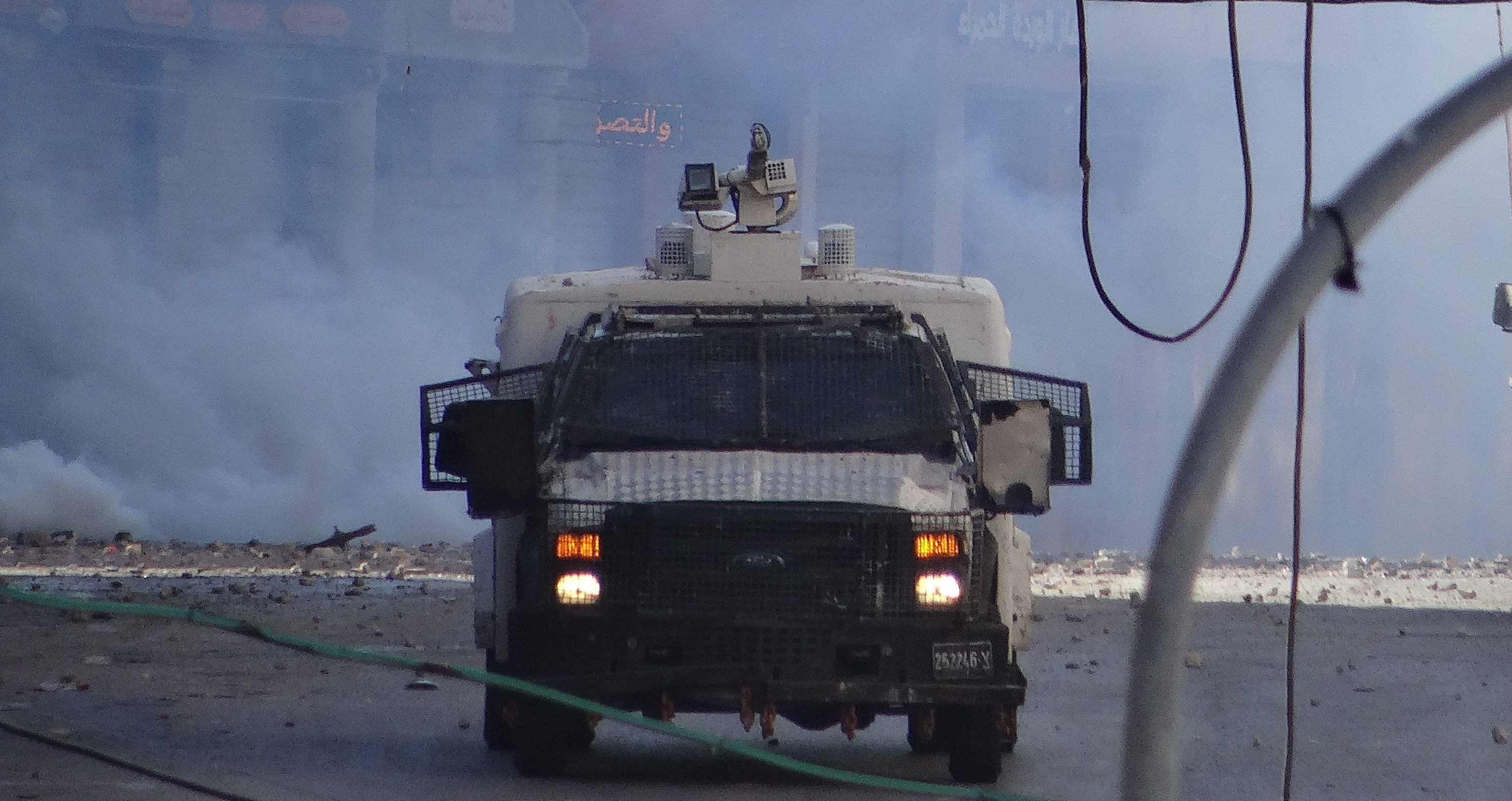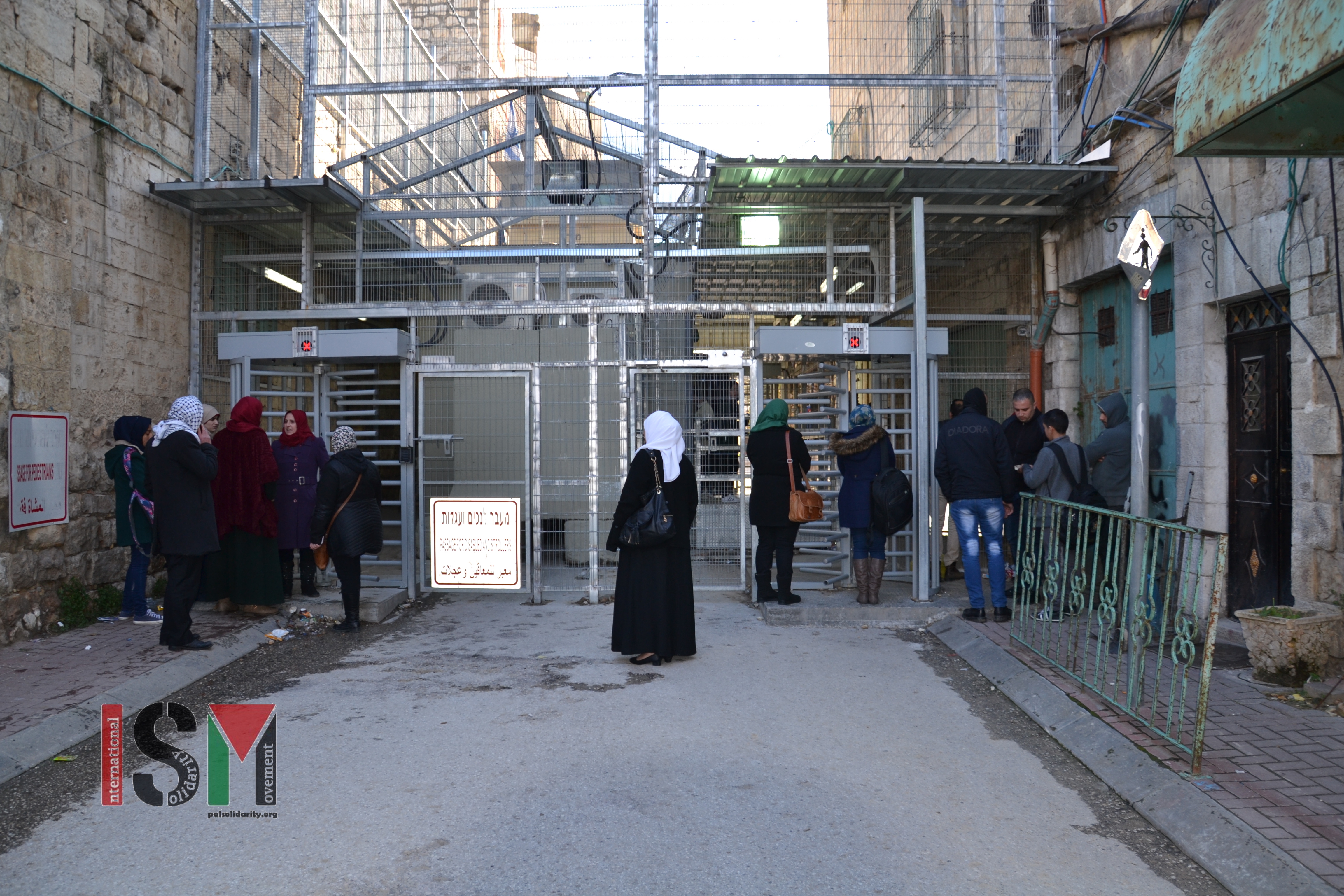Tag: Checkpoint
-

Palestinians celebrating Eid in a ‘closed military zone’
26th June 2017 | International Solidarity Movement, al-Khalil team | Hebron, occupied Palestine As anywhere all over the world, Palestinian Muslims are celebrating the end of the fasting-month Ramadan with the 3-day feast of Eid. Eid usually is a joyous occasion, everyone dresses up nicely and the most important activity is visiting family. For Palestinians…
-

Two days of clashes in al-Khalil in connection with prisoners’ hunger strike
30th April 2017 | International Solidarity Movement, Khalil Team | al-Khalil (Hebron), occupied Palestine Heavy clashes broke out during two consecutive days as Israeli forces stormed the Bab Al-Zawiah neighborhood in al-Khalil, attacking young Palestinians protesting in solidarity with the ongoing prisoners’ hunger strike. It resulted in multiple persons being injured, caused by live ammunition…
-

Checkpoints for humiliation: a journal piece
4th April 2017 | International Solidarity Movement, al-Khalil team | Hebron, occupied Palestine Earlier this month, an international woman was ordered to ‘take off her clothes’ after setting off the alarm whilst passing the metal detector at Shuhada checkpoint, occupied al-Khalil (Hebron). This is a personal journal of the events. Humiliation, harassment, intimidation – a…
